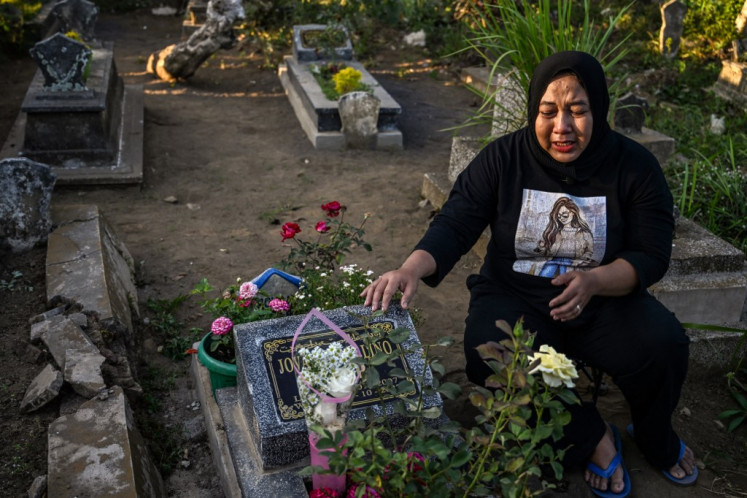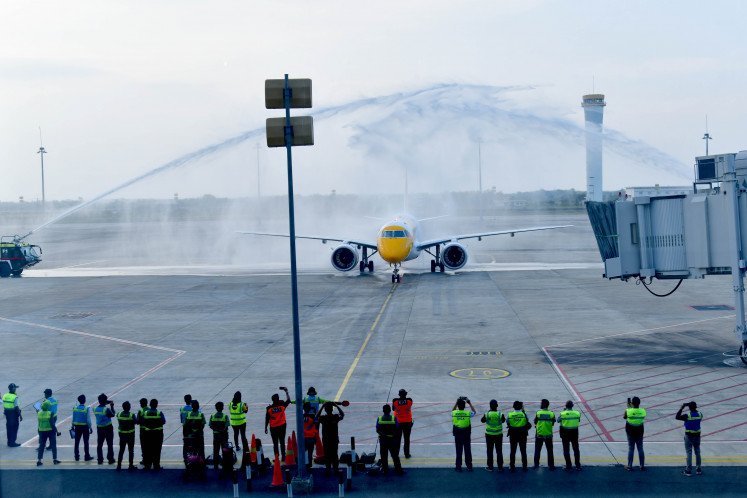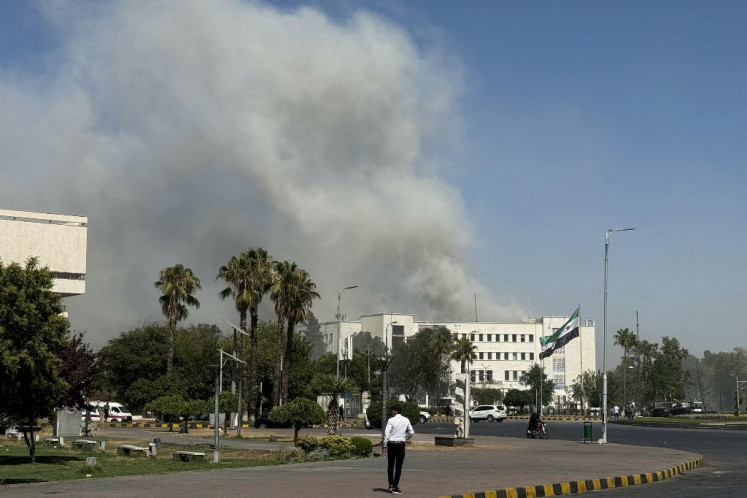Popular Reads
Top Results
Can't find what you're looking for?
View all search resultsPopular Reads
Top Results
Can't find what you're looking for?
View all search resultsCycle of victimization: RI children in prisons
The Sydney Morning Herald reported on Nov
Change text size
Gift Premium Articles
to Anyone
T
he Sydney Morning Herald reported on Nov. 15, 2011 about Faisal Arysad, 16, who was offered a job as a kitchen hand on what he was told was a fishing boat. The offer of US$500 was a fortune for the boy who lived with his mother and grandmother in a dirt-poor fishing village in West Timor.
When passengers boarded the boat, Faisal was told it was for a sightseeing tour of the surrounding islands. The next he knew, their boat was picked up by an Australian navy ship and he was put in detention, then jailed in a maximum security prison.
Another case was Ardi, 16, an illiterate orphan from the island of Lombok. Recruiters who turned up in his village in February 2010 offered him $550 to work as a deckhand on a boat taking some foreigners around the islands.
Ardi’s boat, full of Afghan refugees, was picked up by an Australian customs vessel off Western Australia the next month.
He spent 10 months in immigration detention, without charge, before he was sent to the Arthur Gorrie adult prison in Brisbane on criminal remand.
Eventually, the charges were dropped and Ardi was sent home after 19 months in jail.
Another tragic case was an Indonesian orphan with learning difficulties, 16 years of age, who was detained in an Australian adult maximum-security prison without charge for two years before being quietly released and deported to Indonesia. The boy came from Pantar Island in Timor (Brisbane Times, Nov. 6, 2011)
Those few cases represent a dark picture of life for the remaining 100 Indonesian children jailed alongside rapists, murderers and pedophiles in Australian adult prisons. It is the tip of the iceberg of endless victimization of Indonesian children.
The systematic approach of jailing them in maximum-security prisons appears to be counterproductive and tends to complicate matters that in the long run could deteriorate bilateral relations between the people of the two countries.
Indonesia and Australia have geographical proximity. No one can deny and change this nature. By nature, those who want to migrate to Australia, either legally or illegally, will transit through Indonesia.
To do so, they need local support and since 23 percent of the total population of the border province of East Nusa Tenggara live below the poverty line (BPS, 2010), local children have the potential to be exploited by a transnational criminal network of people-traffickers and illegal-migrant syndicates.
These syndicates benefit greatly by exploiting the vulnerability of Indonesian children in border provinces facilitating the huge demand of illegal migrants to get to Australia.
During the last few years, there have been great changes, transition, unrest and social tensions in the Middle East and North Africa which have created political, economic and social uncertainties.
This phenomenon has increased the number of illegal migrants from those countries trying to get to Australia via Indonesia.
Putting already victimized Indonesian children in Australian adult prison is not the solution. The re-victimization of innocent children is indeed a humanitarian tragedy.
On Oct. 25, 2000, in Canberra, a memorandum of understanding (MoU) on legal cooperation between Australia and Indonesia was signed by Yusril Ihza Mahendra, Indonesian minister of Justice and Human Rights and Daryl Williams AM QC MP, Australian Attorney-General.
The two governments agreed to foster cooperation in the development of legal systems, legal institutions and related areas such as criminal justice policies, good governance, human rights, immigration, treaty making and dispute resolution.
This MoU could be a framework for the two countries to address the issues of illegal migrants and the joint protection of Indonesian children from the threat of global illegal-migrant syndicates.
Another regional mechanism is the Bali Process. A decade after the First Bali Process, the Fourth Bali process, March 29-30, 2011, addressed the importance of promoting a victim-centered approach.
Ministers acknowledged that the root causes of movements within the region were numerous and multidimensional, involving economic, social and political aspects. They also acknowledged that poverty, economic disparity, labor-market opportunities, conflict and insecurity were major causes contributing to the continuing prevalence of people smuggling and human trafficking both globally and regionally.
They agreed on the importance of promoting a victim-centered approach to law enforcement, in relation to identified victims of people trafficking, in order to enhance prosecution and prevent re-victimisation.
Finally, both countries, Indonesia and Australia, as parties to the Convention on the Rights of the Child remain fully committed to working hand-in-hand in the proper implementation of the convention.
The convention has more than enough guidelines to end the cycle of victimization of Indonesian children. As Carol Bellamy said, “The Convention is not only a visionary document. We are reminded daily that it is an agreement that works — and its utility can be seen in the everyday use to which I have seen it increasingly being put by country after country, in policy, in practice and in law.”
The writer, a former director general of human rights, Ministry of Law and Human Rights, and a former UNESCO Consultant in Asia and the Pacific Region, is a professor at the Jakarta State University.










